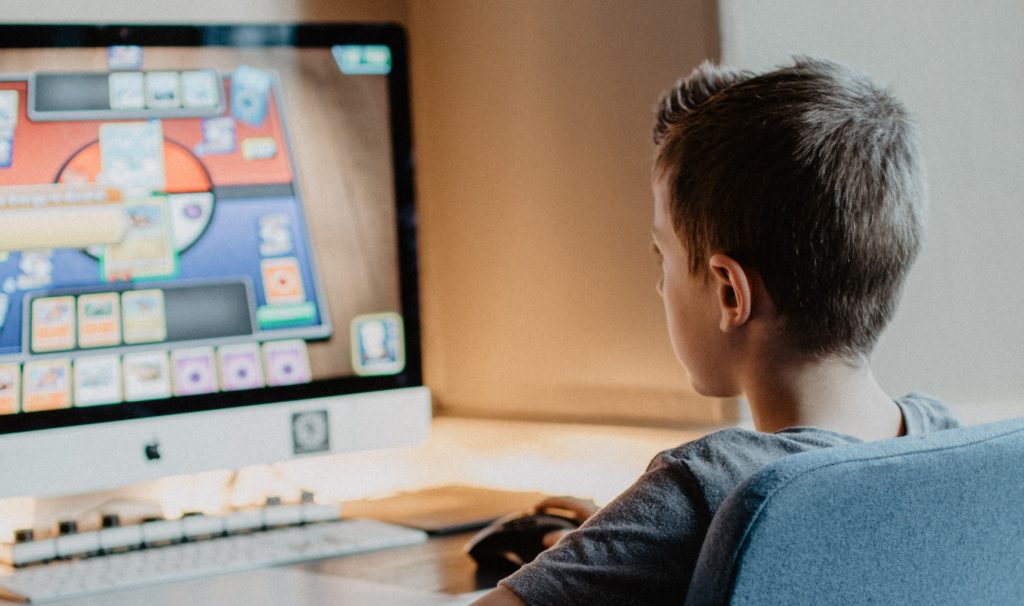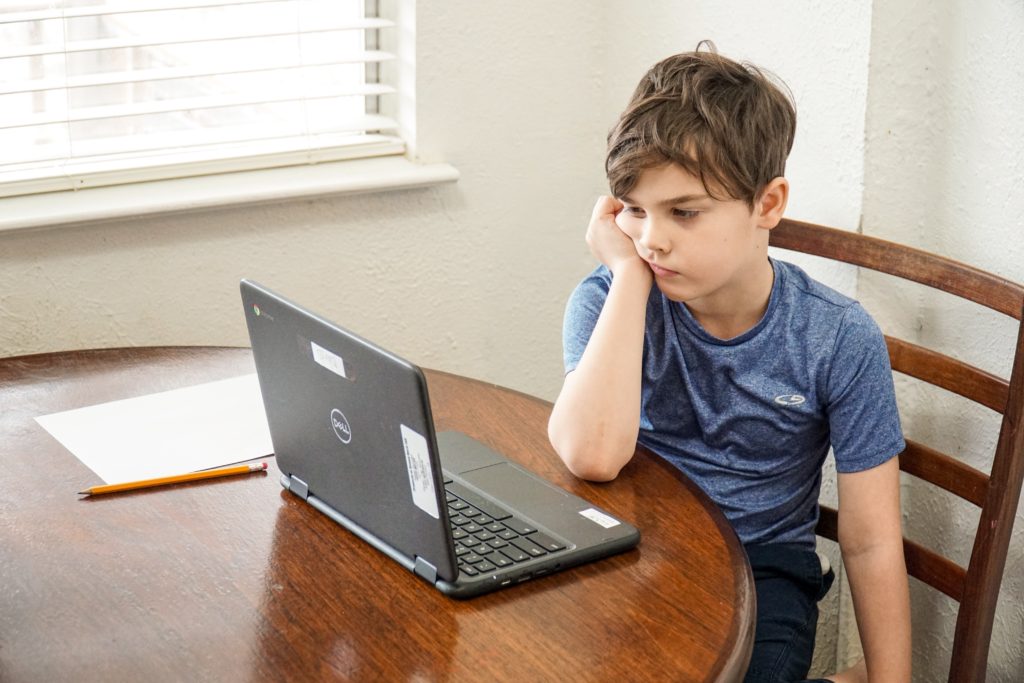Table of Contents
Recent research has shown that a strict type of parenting can lead to higher epigenetic risks of a child later having depression. However, many people are oversimplifying the results of the study to say that the opposite parenting style, permissive parenting, is actually best for a child’s mental health.
This interpretation is based on a false dichotomy as there are actually four recognized parenting styles. Before going into the recent research study, a brief overview of the four types of parenting styles will be important so that no hasty conclusions are made.
What are the four types of parenting?
Authoritarian Parenting
Authoritarian parents are the strictest type of parents. They often yell at and berate their children for mistakes and will only sparingly show affection when a child specifically follows an order.
This type of parent will often give out many rules and expect perfect adherence to those rules. Freedoms are rare and can be lost quickly as a result of breaking rules.
Authoritarian parents do not accept questioning from their children. They will often employ language such as “I am your mother, you can’t speak to me that way.” or “Because I said so, that’s why.”
Rather than giving reasons for why a rule was put in place, they call back to their position of authority and encourage children to blindly follow that authority rather than question and be aware of consequences and risks of their actions.
Common punishments from authoritarian parents include spanking, writing mindless text many times, or isolation. Punishments are meant to cause fear of repeating the action rather than encourage thought about why the action was harmful in the first place.
Authoritative Parenting
Authoritative parents also will often have quite a few rules and expect their children to adhere to those rules. Though strictness is not absent from an authoritative parent, yelling, and physical punishments are almost always absent.
Authoritative parents focus on relationships and logic to get their children to follow the rules rather than their position of authority. They will spend a lot of time talking children through their reasoning and explain why rules need to be in place for their own good.
Punishments are used by authoritative parents, but they will be mindfully connected to the rule that was broken and not simply be some form of bad thing that the child does not like to make them feel bad and avoid breaking the rule again. For example, a child who refuses to share their toys with another child may be forced to share and asked to play with something else for a while.
The authoritative parent will often give the child time to “cool off” and then go back and explain why they need to share or follow whatever other rule was broken. They focus on perspective taking by helping the child to think through what they did and how it impacted others.
A famous example of authoritative parenting is a teenager who comes home drunk and is allowed to go to bed with no yelling or long judgmental conversation. Instead, they are awoken bright and early the next day for a busy day of work. This helps the child to focus on the natural negative effects of their drinking rather than just the fact that it made their parents angry.
Yelling at a drunk person is ineffective whether they are a teen or grown adult. Instead, giving the child time to cool off and not fear their parents, but then being forced to deal with the consequences of their actions is the hallmark of an authoritative parent. After their hangover has subsided, this busy morning of work would likely be followed by a conversation talking about how the child really scared their parents and some discussion on the dangers of alcohol and how to be safer next time.
Permissive Parenting
Permissive parents are the least rule focused parenting type. They tend to worry that too many rules and restrictions will inhibit their child from growing and feeling happy.
Permissive parents usually have some areas they try to keep some order, but when rules are broken, they usually try to immediately talk the child through why they would like the child to stop what they’re doing.
A permissive parent who is dealing with a child who is not sharing their toys would simply talk to the child in the moment of an issue, saying things like “Sweetie, it’s nice to share your toys!” or “See how she wants to play too? Why don’t you let her join you?”
The difference between the talking done by authoritative parenting vs permissive parenting, is that the permissive parents try to talk to the child in the heat of the moment while allowing bad behavior to continue. Authoritative parents stop the problematic behavior and ensure that children do not feel that their parents’ words are empty and easily ignored.
In a permissive type of parenting, parents fear that any negative emotion felt by their child could have lifelong effects. Many research studies fear monger parents by talking about how children are incredibly fragile and easily scarred for life.
Uninvolved Parenting
Uninvolved parents are indisputably the worst type of parenting. Parents can be uninvolved by regularly not being present, or simply not giving any time, care, or attention to their children.
An uninvolved type of parenting is often associated with a host of negative outcomes for the children. They can experience depression, anger management issues, and often end up being poor parents themselves due to their lack of good examples. This cycle can often continue for generations.
In a house with uninvolved parents, children are often left to fend for themselves when it comes to meals, money, and affection. Because parents are not involved, they can also more easily get into dangerous behaviors like taking drugs and alcohol at a young age.

Which type of parenting is best for children?
Harsh parenting causes depression.
Research on parenting styles is rich and clearly shows that an extremely harsh style of parenting can absolutely scar a child for a lifetime. Children need to feel loved, be given boundaries, and taught how to navigate the confusing world before they must go it alone.
Recent research has actually found not only a psychological connection between harsh parenting and depression, but a genetic link as well. This new research, presented at the European College of Neuropsychopharmacology Congress in Vienna found that “perceived harsh parenting, with physical punishment and psychological manipulation, can introduce an additional set of instructions on how a gene is read to become hard-wired into DNA. We have some indications that these changes themselves can predispose the growing child to depression. This does not happen to the same extent if the children have had a supportive upbringing.” (Van Assche)
Genes are not simply present or absent, but can be turned on or off in a variety of patterns called epigenetics. These epigenetic changes are caused by environmental factors such as nutrition, air quality, and most importantly for this research, stress.
Parenting that is authoritarian, utilizes physical punishments, or tries to manipulate children can actually affect genetic expression in children and epigenetically hard wire them to be predisposed to depression. Because of this, parents should absolutely avoid making their children fear them by utilizing spanking or emotional abuse such as yelling when giving out punishment.
Permissive parenting comes with mental health problems as well
If an authoritarian type of parenting is so damaging and stress in a child’s life can scar them forever, surely the opposite style of a permissive type of parenting must be the answer to protect children from these dangerous epigenetic changes, right? Not so fast.
Research has also been done on a permissive type of parenting and the results have shown that while children of permissive parents do indeed not have the aforementioned higher incidence of depression, they do have other issues in their development that can affect their mental health.
Published in the Journal of American College Health, a previous study found that students with permissive parents also felt more stressed in college due to feelings of entitlement. In the researchers’ words: “Permissive parenting was associated with greater academic entitlement and, in turn, to more perceived stress and poorer mental health.” (Barton and Hirsch)
Because permissive parents often coddle their children and set no boundaries, once they enter the real world, the children are often shocked at not being allowed to continue to do as they please without consequences and don’t know how to deal with being told no firmly. This leads to higher stress as the children have not been taught how to handle rejection, punishment, or things simply not going their way.
This research is not the only of its kind. Another study out of the Journal of Genetic Psychology found that permissive parenting styles lower the emotional intelligence of their children. (Wischerth et al.) This lower emotional intelligence makes them less capable of understanding others’ perspectives, motivations, and limits their ability to “read the room” and understand when they are getting themselves into trouble.
Children need guidance and boundaries to learn how to navigate the world and consider how their actions affect others around them. Permissive parents may not lash out and harm their children in the moment, but their lack of teaching their children to consider how their actions affect others can limit them in their futures.
Authoritative parenting is the best balance
Authoritative parents balance not stressing out their children through authoritarian practices while also not simply permitting children to do whatever they feel like in the moment with no consideration of others. By giving clear boundaries and discussing the purpose of those boundaries, authoritative parents help their children feel safe from the stressors of the world and also build up their resilience for their independent future as well.
In a study that sought to compare different parenting styles, the researchers found that authoritative or “firm” parenting did not have the same negative effects that harsh authoritarian parenting does. According to the researchers, “harsh parenting strategies were associated with teachers reporting poorer child adjustment at school; firm-responsive parenting strategies were related to lower parent-reported behavior problems in the home.” (Shumow et al.)
Authoritarian parents may get their children to toe the line when at home, but when out from under the pressure of their harsh parents, they misbehave at school. Firm authoritative parents on the other hand not only did not have the increased behavioral issues at school, but also struggled less with their childrens’ behavior at home.
Research from Japan shows that this is not a cultural question either. The Japanese researchers found the same findings that authoritarian parenting had many negative effects on later mental health while authoritative parenting had positive effects.
Do teachers have “parenting styles” as well?
Teachers, especially elementary school teachers, spend a massive amount of time with their students. While generally teachers might not spend as much time with their students as their parents do, that is sadly not always the case.
Especially when students have uninvolved parents, it is important that teachers use this research to help give their students new models of behavior to hopefully stop the cycle of abuse that can form from abusive parenting styles. Teachers can start by avoiding all of the same things listed above such as yelling or berating students who misbehave.
Teachers can do a lot in how they run a class to be authoritative, but not permissive. Taking time to explain reasoning for rules is a good first step. While content is important, having well balanced children who can navigate the world is far more important than any math formula, science equation, or novel.
While time consuming, these practices will actually lead to more efficiency in the long run. Students will learn to work with the teacher instead of seeing them as the warden of their jail cell.
Teachers should not allow students to simply ignore the rules or be told hundreds of times about the same issues. This teaches students that rules are not really all that important and authority figures merely give guidelines rather than enforcing rules.
This can be extremely dangerous when these students later go into the real world and have to deal with police and government officials who will not give them multiple chances to follow the rules. If they ignore the real authority figures, the consequences are far more dangerous. Permissive teachers and administrators are creating a generation of students who will be far more at risk for getting into serious trouble due to not taking rules seriously.
So that answers what teachers should avoid doing, but what should teachers add in to their lessons to be authoritative but not unquestioned authoritative teachers?
Research shows that teachers should give their students a lot of autonomy and allow them to lead the class rather than simply sit in silence and absorb the genius of their teacher’s lecture. Giving students the space to explore interesting content with specific rules and parameters is the teaching version of authoritative parenting.
A teacher who simply lectures and never circulates the room is like an uninvolved parent. Sure, they are technically giving out the basic needs of the class, but most uninvolved parents will at least make sure their child has food, water, and a bed to sleep in.
Teachers need to be regularly engaging with students to give guidance or push them further. Even when students are simply focusing on writing and should not be interrupted, an authoritative teacher will be gathering data based on observations to inform later conversations.
Being a good parent or teacher is about making good relationships with young people and guiding them in how to think about the future. When they feel that they are safe, they will be much more willing to be guided and this will make the adult’s job much easier.
Conclusion
In conclusion, it is important to not jump to conclusions when reading new scientific studies. This most recent study may have shown that a harsh authoritarian type of parenting can cause depression, but that does not mean that the opposite extreme is any better.
Instead, teachers and parents need to focus on a balanced approach that starts with relationships. Rather than trying to keep children from experiencing any negative emotions or hardships, parents and teachers need to give realistic boundaries that will prepare their children for a realistic future.
Children will always encounter hardship at some point in their life, but if they have a strong relationship with a trusted adult, they can always feel safe, share their burden, and receive guidance on how to make it through the tough times.
Want more like this? Make Lab to Class a part of your weekly professional development schedule by subscribing to updates below.
References
Barton, Alison L., and Jameson K. Hirsch. “Permissive Parenting and Mental Health in College Students: Mediating Effects of Academic Entitlement.” Journal of American College Health, vol. 64, no. 1, 2015, pp. 1–8., https://doi.org/10.1080/07448481.2015.1060597.
Shumow, Lee, et al. “Harsh, Firm, and Permissive Parenting in Low-Income Families.” Journal of Family Issues, vol. 19, no. 5, 1998, pp. 483–507., https://doi.org/10.1177/019251398019005001.
Van Assche, Evelien. “Strict Parenting May Hard-Wire Depression Risk into a Child’s DNA.” Neuroscience News, 23 Oct. 2022, https://neurosciencenews.com/strict-parenting-depression-21707/.
Wischerth, Grace A., et al. “The Adverse Influence of Permissive Parenting on Personal Growth and the Mediating Role of Emotional Intelligence.” The Journal of Genetic Psychology, vol. 177, no. 5, 2016, pp. 185–189., https://doi.org/10.1080/00221325.2016.1224223.



